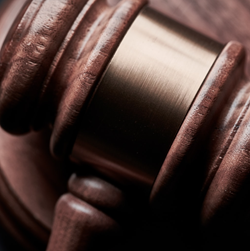
Success of a claim is never guaranteed. Even when the facts and contract terms support a claim, there are many reasons claimants can lose – the most common being that they failed to provide a counterparty with proper notice of their claim.
In disputes between owners and contractors, this typically means that the contracting company is the one that suffers, as it is more often the party seeking cost or time relief. However, owners can experience the same fate when they have claims and fail to give contractors notice.
Further reading:
- Think you have a differing site conditions claim? Proving it is a high bar
- Who bears the risk of errors in design-build bridging documents?
- Court rules against DOT’s disadvantaged business enterprise program
This was well demonstrated in a recent Pennsylvania decision, Electri-Tech Inc. v. Radnor Township, where a public owner failed to give any notice to its contractor of its claim for liquidated damages.
The case
The township of Radnor, Pennsylvania, used a multiprime delivery process for its renovation of the Radnor Memorial Library. The township awarded a $400,000 prime electrical contract to Electri-Tech that was based on the 2007 edition of the American Institute of Architects standard form contracts. The contract had a substantial completion date of Oct. 6, 2017, and specified that late completion would result in liquidated damages in the amount of $750 per day.
The electrical work was riddled with delays from the start of Electri-Tech’s performance. For example: 1) the township issued notice to proceed about one month later than the commencement date; 2) the township’s general contractor damaged existing underground electrical conduits for parking lot lights; 3) the electrical work was placed on pause due to mold remediation; and 4) the township issued change orders for additional electrical work.
While the substantial completion date was extended by change order to Nov. 21, 2017, Electri-Tech did not achieve substantial completion until May 11, 2018.
Once Electri-Tech achieved final completion in June 2018, it submitted a request for final payment to the township of $27,849.50. Without giving a clear reason, the township refused to pay. Because the matter was unresolved for almost a year, Electri-Tech sued the township for not only its contract balance, but an additional $151,000 in delay damages.
The township filed a counterclaim for $107,250, based on Electri-Tech having achieved substantial completion several months late. The township also argued that Electri-Tech was not due final payment because it had not provided the closeout documents needed under the AIA contract and that the architect had not approved the final payment application.
During the two-day bench trial, the evidence showed that neither party had advised the other of its claims for delay. Electri-Tech admitted that it did not submit a change order request to move the final completion dates or seek reimbursement for additional costs. There was also evidence that the township never notified Electri-Tech that it was responsible for any of the delays in construction and that Electri-Tech only learned of the township’s reasons for not making final payment as a result of the litigation.
The trial court noted that there were meeting minutes suggesting that while liquidated damages could be imposed for delays, the township was not imposing them. The trial court also found that the township never objected to a schedule update and never asserted in response to a schedule update that Electri-Tech would be charged liquidated damages. Rather, the township allowed Electri-Tech to continue with its pace of work, per revised schedules, without any complaint or objection.
Based on the evidence, the trial court denied the township’s claim, holding that “the imposition of liquidated damages must be notified in a timely manner,” i.e., when the delay occurs. It also rejected the township’s contractual arguments that Electri-Tech was not due final payment and awarded Electri-Tech its final payment amount.
However, the trial court denied Electri-Tech’s delay claim, as Electri-Tech also failed to provide proper notice to the township of that claim.
The ruling
The township appealed to the Commonwealth Court of Pennsylvania on several grounds, including that the trial court erred by not allowing liquidated damages. The appeals court concluded that the trial court was correct, citing the AIA contract’s notice process.
The contract clearly required that claims by either party had to be initiated by written notice to the other party and the architect within 21 days of the occurrence that gave rise to the claim or the party’s recognition that a claim existed.
The term “claim” was defined in the AIA contract to mean any demand for the “payment of money or other relief with respect to the terms of the contract.”
The court found that the township’s liquidated damages claim was subject to the 21-day written notice requirement and that the township failed to comply with this requirement. Specifically, the court cited the trial court’s findings that “not once during the project did the township assert that it was going to apply liquidated damages against” Electri-Tech.
The township also argued that the trial court erred in ordering it to make final payment because, among other things, Electri-Tech did not obtain the architect’s certification of work completion and final certificate for payment. The appeals court disagreed, finding that Electri-Tech did what it was required to do to obtain final payment.
The evidence demonstrated that Electri-Tech submitted to the architect an application for final payment stating that the work was ready for final inspection and acceptance. The contract required the architect to “promptly make such inspection” and to promptly issue the final certificate for payment if the work was acceptable and fully performed.
The final inspection was completed on June 15, 2018, and there was no evidence that the architect or township ever notified Electri-Tech that its performance had a deficiency. Consequently, the court found no reason for the architect not having promptly issued the final certificate for payment.
The takeaways
It was quite hard to follow what the township was thinking and why it took the positions it did. The contract clearly required the township to give some form of notice to Electri-Tech if it intended to make a claim for liquidated damages.
While the courts relied on the township’s silence in reaching their conclusions, there is a strong likelihood that the township would have lost even if it had given notice. Based on the decision, there was no evidence that Electri-Tech had caused any delays or problems or had any outstanding work remaining at the time of final completion.
It is also hard to follow why the township refused to make final payment to Electri-Tech and why the architect did not do its job in certifying the final application for payment. The AIA contract, like many others, requires an owner to specifically explain the reasons for withholding payments.
There is no clear indication in the published opinion that the architect or township ever did this. On the contrary, it appears that Electri-Tech cooperated and did exactly what it was supposed to do to get final payment.
Finally, before one thinks that Electri-Tech was the winner in this case, consider the nominal amount of money involved with final payment – i.e., approximately $28,000. Based on the evidence set forth in the published opinion, the township should never have contested final payment in the first place and forced Electri-Tech into taking the actions it did.
While the courts awarded Electri-Tech interest, the amount of legal and expert fees that were needed to support Electri-Tech’s claims certainly far exceeded what it recovered.




